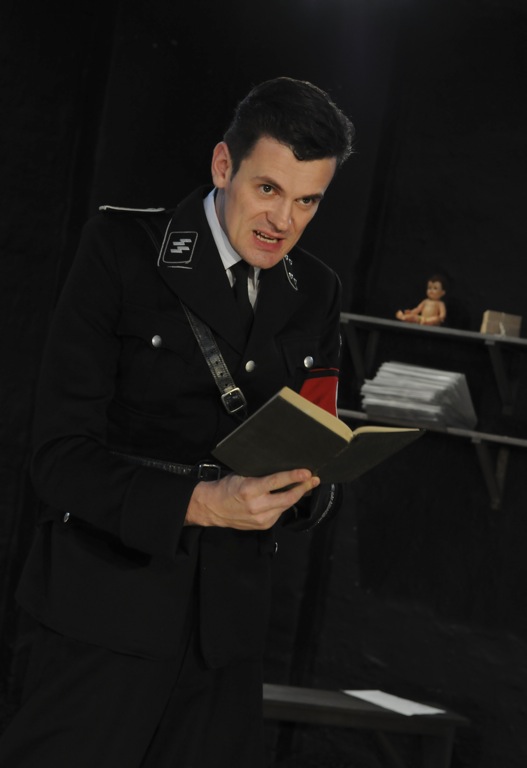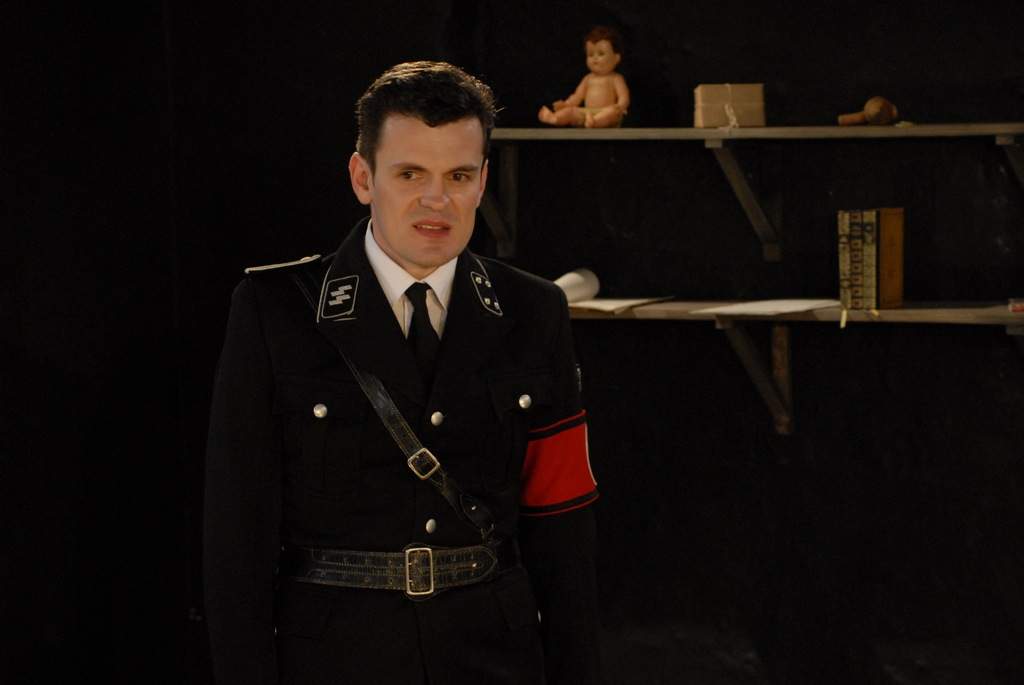Concrete Playground Interviews: Nathan Lovejoy (Way to Heaven)
Way to Heaven is an extraordinary play, difficult and confronting. The script is based on the true story of Theresienstadt where, in 1944, prisoners of a Jewish concentration camp were forced to act the part of a model Jewish settlement for visiting Red Cross officers. It raises disturbing questions about the nature of art and the ways in which it can be used as a means to despicable ends. Actor Nathan Lovejoy was kind enough to act as my guide through this difficult world, speaking with me about the performance and his role within it.
Lovejoy plays perhaps the most monstrous part in this drama: the German SS commandant charged by Berlin to devise and direct the prisoners' performance. In conversation, Lovejoy is affable, considered and in possession of a provocative sense of humour. When I ask about his take on playing the evil side of the equation, he explains, "They were just your neighbours, in a way. I'm sure some of them were charming, nice, affable people that just perpetrated these extraordinarily monstrous things." This might sound like a contradiction in terms but, as Lovejoy sees it, this may just be the most disturbing part of the tragedy. "People often talk about the Germans the people that perpetrated these monstrous acts as monsters. The really intriguing and disturbing thing about it is they weren't. They were normal people that committed monstrous acts, which is all the more fascinating and disturbing. This is within everybody."
This goes somewhat towards explaining how, much to my horror, I was caught laughing during the performance. Lovejoy's charm and wit are particularly responsible for this. This unique take is born of director Tanya Goldberg's assertion, echoed by Lovejoy, that this is "more than a holocaust play". The text poses questions about what it means to 'perform', what responsibility performers have, and why sometimes performance is absolutely necessary. The performances within the play are layered like an onion: there is the play that we knowingly visit, the play within a play that we watch being constructed on stage, the performances that characters feel they need to give in the situations at hand, and the performance of war what Lovejoy calls "being part of the big show".

Rather than avoiding or questioning the historical issues it raises, the play seeks to understand these issues in new and more complex ways. Lovejoy carefully stresses that the production "is not being revisionist in any way" or seeking to suggest that we should look at events differently. Giving me a quick History 101, Lovejoy refers to the general perception pre-World War II of a 'Jewish problem' Zionism can be interpreted as one reaction to this. "People wanted an answer. It was only when it was revealed to what lengths they [the Germans] were going to, to execute their final solution, that people started to think 'that's too far, that's too much'. But to a point the world were willing to go along with it." Disturbing stuff. For Lovejoy, this is the issue: "our complicity and how people participated". The implied warning here is that if we fail to learn, we may be doomed to repeat.
In revisiting this history, the play forces us to take a long look at the performances that we give in our lives and how they contribute to the bigger picture. What is the purpose of performance if not to communicate with others? In Way to Heaven, the Red Cross character longs for a sign that will enable him to act. For Lovejoy, this poses more questions. "What is enough? Is it enough to acknowledge that these things happen or do we have to say something, do something? With the genocide that continues today around the world in different countries, is it enough just to acknowledge that it is happening or at what point do we take a stand and do something about it?"
With all these questions, it's nice to know that the production will give its audiences some opportunity for discussion, if perhaps not answers. While after most theatre performances, as Lovejoy notes, "it's straight out of your seat and off to the bar", Way to Heaven nurtures post-show discussion by offering up a different cast member every night. A group opportunity for audiences, and, no doubt, very confronting for the actors. Is Lovejoy concerned about what people will have to say? "I think people's reactions to the content will be split and polarised, which is okay: I think that's what it's supposed to do. But I hope it, as an experience, is incredibly powerful and should throw up a hell of a lot of questions."
Images by Heidrun Löhr.





